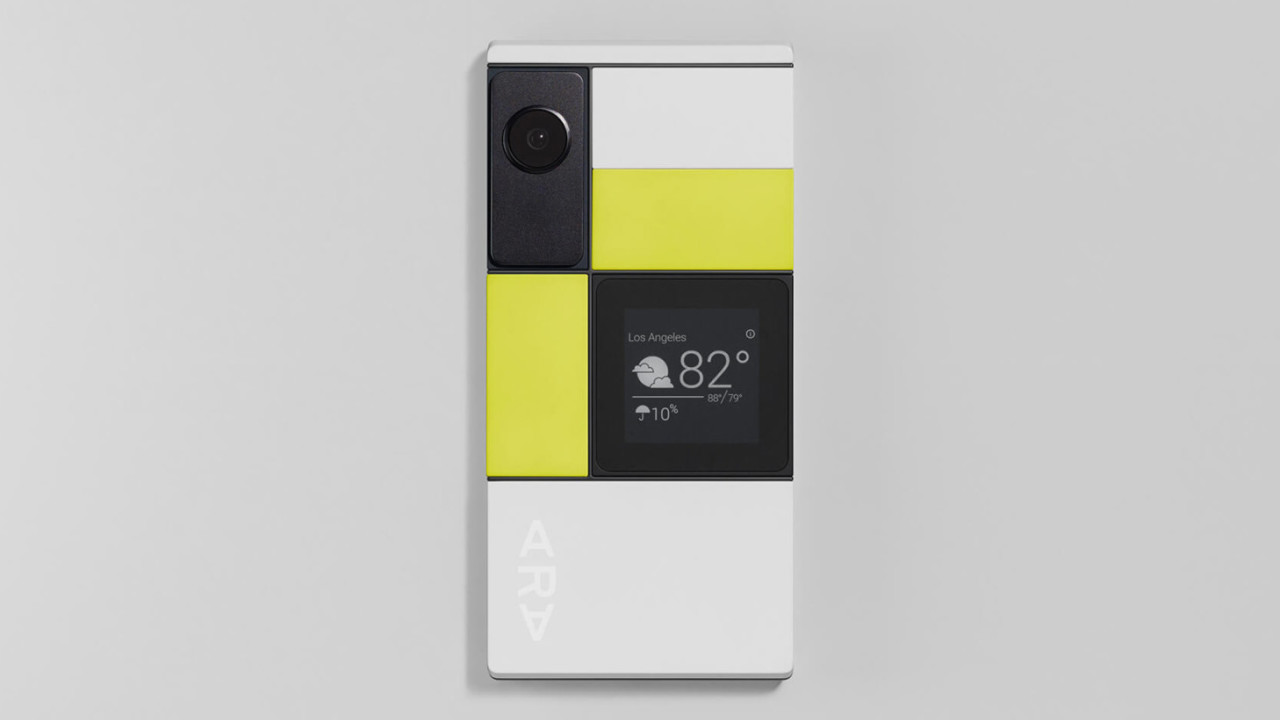Google is killing Project Ara, it’s modular smartphone concept that aimed to let you ‘upgrade’ your phone piece by piece.
In theory, it sounds pretty amazing. In practice, it would have been terrible.
Google was trying to gamify upgrades
As-is, the smartphone upgrade process typically involves buying an entirely new phone every year or two, which has a slew of new components both inside and out.
That means that every so often, we’re out $500-800. It’s a big spend, and the idea of dropping $100 for a new camera module seemed so right by comparison.
But it isn’t, because it’s not that simple.
It’s a slippery slope. You might want to upgrade your camera, but what components does that camera need? If your 1GB RAM isn’t enough to power your badass new camera on top of everything else your phone has, that’s another upgrade.
Does the screen display your images in their full glory? No? Welp, there’s another upgrade for you!
Rather than drop $650 on a phone, you’d be pulling teeth to figure out which of your $400 in add-ons work together, if they even will.

Software
Even if your components all work in harmony, it might be on dated software. Qualcomm’s Snapdragon 800 and 801 SoCs aren’t getting Android Nougat because it refuses to support them. That’s a big problem.
It’s an issue that is potentially compounded by Ara-style add-ons, too. If Qualcomm is rage-quitting Android Nougat on devices that have it packed in, why would it ever consider supporting standalone modules?
More to the point, Ars Technica reports Qualcomm is simply passing the buck to the OEMs that are using Snapdragon. That’s not really a possibility with modular smartphones.
It’s typical Google
Sadly, Ara is typical of Google. It gets a room full of developers all lathered up about a new toy, then just kind of pulls it away from them. Please see the Nexus Q and Google Glass — both equally as auspicious and ill-conceived as Ara.
And like Glass, I never expected Ara to actually catch on. It was a neat idea, but became clear at I/O 2015 that it wasn’t scaling properly. The unit barely turned on — which is cool, but Google needed Ara to be much further along than it was.
The company will tell you its skunkworks divisions (X and ATAP) are built for failure, and that’s all true. It’s also acceptable until Wall Street comes knocking; we’ll keep in mind that these sudden downturns, like Ara and Fiber, are coming after Google’s surprising bad quarter earlier this year.
And like Qualcomm, Google is passing the buck. From the original report, via Reuters:
While Google will not be releasing the phone itself, the company may work with partners to bring Project Ara’s technology to market, potentially through licensing agreements, one of the people with knowledge of the matter said.
Modular is a bad idea
LG just tried to do modular, and the reception was luke-warm. Nobody really cares, because even with a product as polished as LG’s, modular smartphones are not easy. Those who’ve tried the phone out say pieces don’t fit right, and components are expensive and stupid — everything they forgot when it came to Ara.
And that made Ara a nightmare. Even if the stars aligned, and Google could get a product to market with support from all sorts of third-parties, the end result is a confusing mess.
The people who actually use smartphones won’t want to swap out fussy little magnetic add-ons to take a nicer picture or play a cool game.
Users want a phone that works as designed, has solid software that’s updated on time and keeps them connected to the rest of the world. Ara was never going to be what those users want anyway.
Get the TNW newsletter
Get the most important tech news in your inbox each week.





